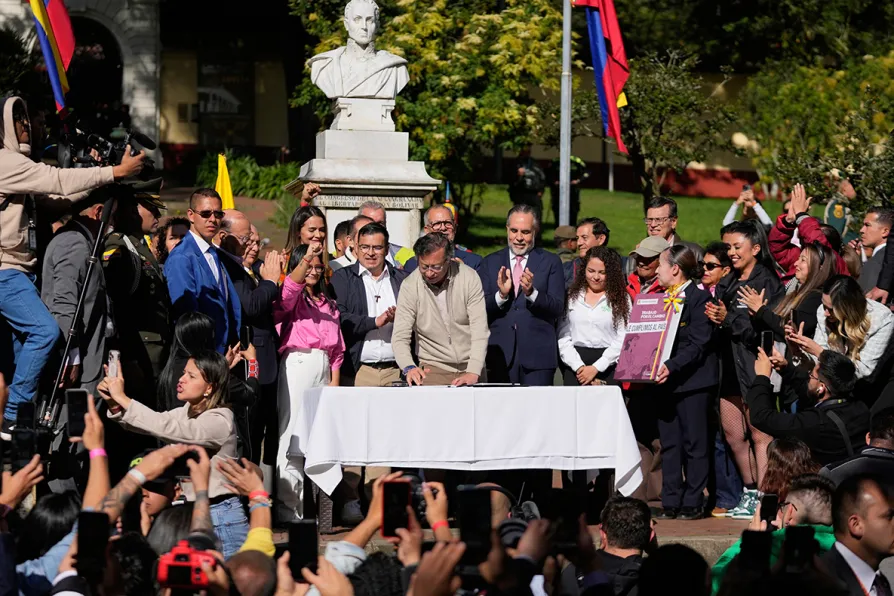
 Colombia's President Gustavo Petro signs a labor reform bill into law in Bogota, Colombia, June 25, 2025
Colombia's President Gustavo Petro signs a labor reform bill into law in Bogota, Colombia, June 25, 2025
COLOMBIAN President Gustavo Petro has signed into law a labour overhaul with the potential to profoundly shift the balance of power from employers to workers.
The move is a victory for the left-wing president even as Congress compelled him to scale back his more radical ambitions.
Mr Petro has had to fight to deliver on his promises to reduce inequality in one of the region’s most unequal nations.
But the law faced opposition from business leaders and Colombian government bonds have suffered as market traders fear an impact on profits.
The law increases overtime pay for salaried workers and limits the use of short-term contract workers, while requiring companies to provide medical coverage and social security for gig workers like food delivery drivers. It also promises student interns proper contracts and benefits like holiday and severance pay.
Many of Mr Petro’s efforts to expand social programmes have stalled in Congress, with lawmakers shooting down this labour law twice.
Lawmakers let the legislation through last week after the president moved to call a public referendum.
Mr Petro took to the X social media platform after signing the law on Wednesday to urge the population to “elect a government that will uphold this law and enforce it,” alluding to the 2026 presidential elections.
The reform was cheered by trade unions and Mr Petro’s political allies.
Opposition lawmakers have painted a nightmare scenario of mass job losses that will push more workers into Colombia’s already vast informal economy.
Many say that the reductions in working hours, increases in overtime pay for Sunday and holiday shifts will especially squeeze small and medium-sized businesses.

With Petro, Colombia has been making huge strides towards peace — but is all that at risk with the elections next year? MARK ROWE reports back after joining a delegation to the Latin American country

Colombia’s success in controlling the drug trade should be recognised and its sovereignty respected, argues Dr GLORY SAAVEDRA

President hoped to give voters chance to decide on 8-hour work days and double pay for holiday work











